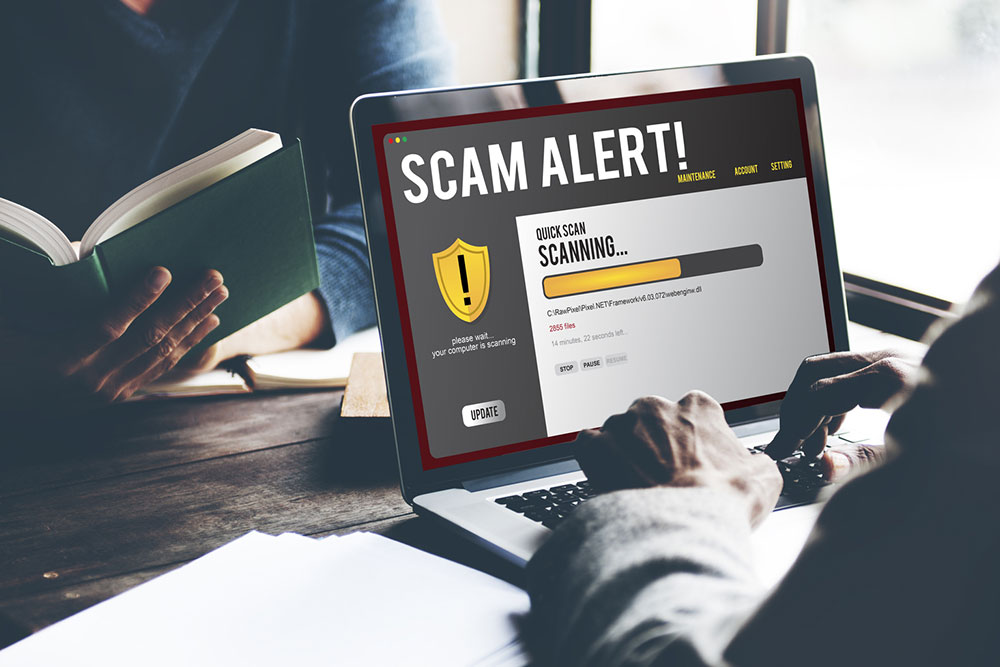7 telltale signs of a charity scam

One of the perks of social media and technology is that they help people stay connected with the world. While that is an advantage, one of the many disadvantages of easy information sharing is an increase in scam schemes, especially charity scams. Scammers capitalize on a donor’s goodwill and try to line their pockets with the donated money. Here are some of the telltale signs of a charity scam that should not be missed.
1. Giving insufficient charity details
Every charity organization has its purpose and mission statement ready. These are some basic details an organization is always prepared with. Donors usually look at these mission statements and purposes to determine if there is an alignment in their thoughts and mission. If a charity cannot provide these details, it could be a sign that they are not a legitimate charity.
Some of the questions to ask them are mentioned below:
- Where does the charity work, and where is the headquarters located?
- How is the donation money used?
- What is the organization’s tax-exempt number?
- Does all the money go directly to the program or only some percentage?
2. Pretending to be an employee of a known organization
Some scammers will call to thank a donor for a gift they received for a cause of the donor’s choice. Scammers could be using a credible charity’s name that is well known to gain the donor’s trust. Instead of falling prey to it, always ask the caller for the details of the last gift given. These can include the date, the amount given, a form of payment, and for which cause. These details ensure that the person calling is from the charity one donated to last and is not a scammer pretending to be a part of the organization.
It is important to keep a tab of all the yearly charity donations for records and tax purposes so one can file them accordingly and claim them.
3. Asking for an immediate donation
Most well-known charities always provide ample time for the donors to think their decisions through. They also give them all the reasons to donate and help them with this decision. It is important to note that a pushy asking for a donation is not the right way to go, and this could indicate some sort of a scam. Asking for contributions on the spot is impolite and forceful, leaving the donor questioning the organization’s legitimacy. Also, one should do a thorough Internet search of the said organization to check for any red flags. If there are any issues, refuse to make a donation there and choose another legitimate organization.
4. Asking for alternate payment
One should not entertain requests to donate in cash, gift cards, or even through payment applications like Venmo or CashApp. These are some ways for the scammers to get paid, and any transaction made through these apps or in cash is not returnable. So always be extra vigilant of these scams. Also, if the person calling from the organization is making claims like guaranteed sweepstakes winning in exchange for a donation, then be careful that this is most likely a scam. No charity organization promises any kind of winnings for the donation made. No law suggests that a donation must be made to win sweepstakes, so always be alert to these claims.
Another tip to note is to give charity donations through their website, not through any third-party app or website. Of course, always ensure the website is official and legitimate. Only then proceed to donate.
5. Lacking credibility
Some dedicated websites and companies have made it their mission to make people aware of all the legitimate organizations working for the greater good. The cause can vary, but many organizations feature on these websites. A few websites to check out to find whether the charity organization is legitimate include Charity Navigator, Charity Watch, and Better Business Bureau’s Wise Giving Alliance.
These three websites usually have the most registered charities on their page, and it becomes easy to recognize which ones truly work for the betterment of society and people. Be sure to cross-reference the charities here.
6. Asking for personal information
No charity will ask for personal information like social security numbers, bank account details, date of birth, etc. Any person or organization asking for these details to fulfill donation requirements is not a legitimate charity and is likely to scam the donor of their money.
7. Getting emails with unverified links
There are also several email scams where the sender sends out a “Help” message or a donation email to ask for help. Some links are often attached to the email, asking the recipient to click and send money. Never open these links from an unknown source; always check for their legitimacy.
Similar scams happen on text messages and social media, so staying vigilant of this misinformation and keeping personal information and banking details private is essential.